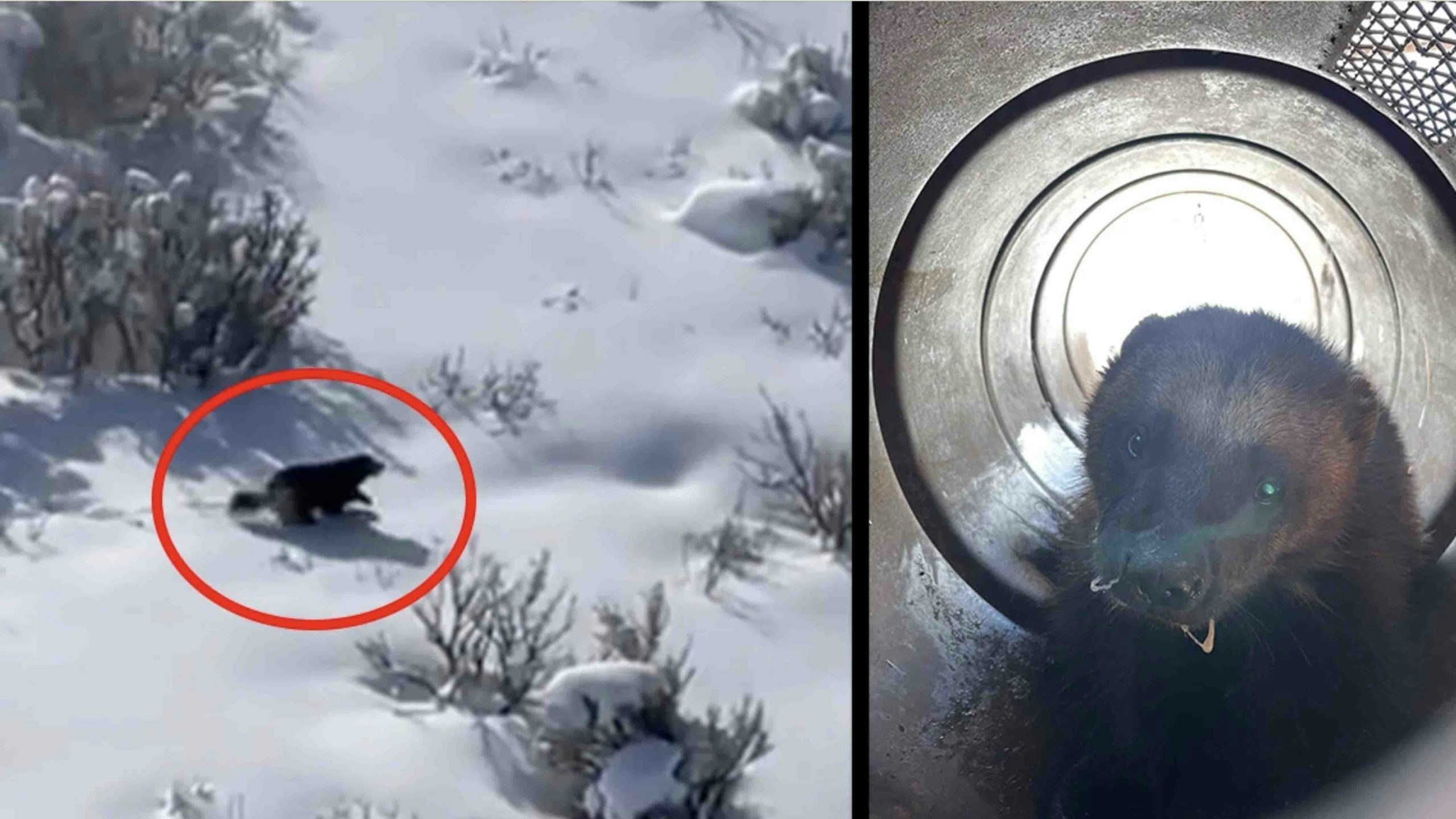The discovery of a wolverine in Utah near the Wyoming border has an Evanston rancher worried about the potential threat the predators bring, he told Cowboy State Daily on Tuesday.
Vance Broadbent, who has cattle, sheep and goats throughout Uinta, Lincoln and Sweetwater counties as well as in Utah, told Cowboy State Daily that even though the number of wolverines in Wyoming is believed to be low, after seeing the damage done by the one in Utah, he is concerned about the predators.
Earlier this month, a wolverine was captured and collared by the Utah Division of Wildlife Resources after it was caught attacking sheep.
“Until this incident, I didn’t know the devastation they could wreak,” Broadbent said. “It killed or injured 18 sheep over a couple of days. Then it was relocated to the area that we use for our summer range.”
While Broadbent was glad the animal was collared, he still was concerned about having another predator near his animals.
He said that in the current livestock market, ewes can cost anywhere from $350 to $450, meaning that if he lost 18, he would be out thousands of dollars.
“The bottom line is that those ewes are also producing lambs, so this isn’t just a one-time problem,” Broadbent said.
He added that one of his biggest concerns is how he would be reimbursed if one of his animals were to be killed by a wolverine. In situations where bears or mountain lions have killed one of his animals, the state has reimbursed him for the livestock.
But since wolverines do not have the same protections, any livestock producer would be out the cost of the animal if a wolverine were to kill it.
“I saw there was a sportsman group in Utah who reached out to the producer who lost 18 sheep and are going to reimburse him for the loss,” Broadbent said. “I think that’s awesome, but I also know we would have the same issue in Wyoming as in Utah.”
During the Wyoming Game and Fish Department’s most recent wolverine monitoring count, there were only eight recorded in the state, but biologist Zack Walker previously told Cowboy State Daily that there are likely more.
Earlier this month, the sighting of a wolverine in Yellowstone caused so much excitement it became national news.
“They’re still considered a species of great conservation need and they’re actually protected by law in Wyoming,” Walker said. “They fill kind of a middle predator role, where they will eat live prey, but they also do a lot of scavenging, too.”
The entire species nearly went extinct in the 1920s in the lower 48 states because of unregulated harvesting, habitat loss and broad-scale carnivore poisoning, according to the Game and Fish department.
Wolverines are generally not dangerous to humans, unless they are backed into a corner and are desperate.
They are the largest mammal in the weasel family, and while they are similar to badgers, they tend to scavenge more than their temperamental family members.
Editor’s note: The original version of this story said that the state would reimburse a livestock producer when a coyote killed an animal, but this was incorrect. The story has been updated to reflect this.





